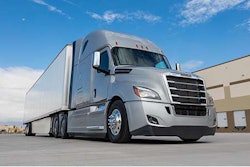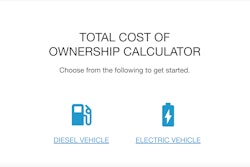
A bill introduced Monday, Feb. 4, in the California Senate would require Class 4 and heavier trucks to undergo more stringent emissions testing than currently required before registering or even operating in the state. The tests could also be an added annual expense for carriers who run in California.
The bill, dubbed the “Heavy-Duty Vehicle Inspections and Maintenance Program” bill, calls for testing that measures the effectiveness of “the control of emissions of oxides of nitrogen and particulate matter.” The testing would have to be completed annually.
The bill says testing may include using trucks’ onboard diagnostics system data by plugging into the truck’s engine control module (ECM), as well as tests that measure the effectiveness of greenhouse gas emissions, which could require a dynamometer test, says Joe Rajkovacz, director of governmental affairs and communications for the Western States Trucking Association.
He says a dyno test would likely cost around $250 per truck. There were nearly 600,000 Class 4 and above trucks registered in California as of December 2017 with an additional 1.7 million trucks based in other states that pay fees to operate in California, according to California Air Resources Board statistics.
CARB already requires California-based fleets with two or more trucks to conduct annual smoke opacity inspections on all vehicles. This bill would go beyond that, requiring more in-depth testing, similar to what cars in the state must complete on a biennial basis.
[rr-story-promotion id=”186199″ align=”center”]
“We think this program is unnecessary since CARB already requires annual periodic smoke testing,” Rajkovacz says. “On top of that, they have a roadside inspection program where they pull you aside and do a snap idle test to check the opacity level of the smoke leaving the stack.”
California-domiciled trucks already have to meet the state’s Truck and Bus Regulation beginning in 2020, or the state’s Department of Motor Vehicles will block the truck’s registration.
Fees collected as part of the program for testing would be deposited into a new Truck Emission Check Fund, which the bill says would be used for administrative purposes of the program. Any penalties collected from violations of the program would be deposited into the state’s Air Pollution Control Fund.
The program proposed in the bill would also have a database that would be used to collect and track data on tested trucks, then send the data to the California Department of Motor Vehicles to make sure a truck can be registered to use California’s roads.
The bill also would ban any trucks with an illuminated Malfunction Indicator Lamp, which indicates an emissions system-related problem with a truck.
[rr-story-promotion id=”220910″ align=”center”]











